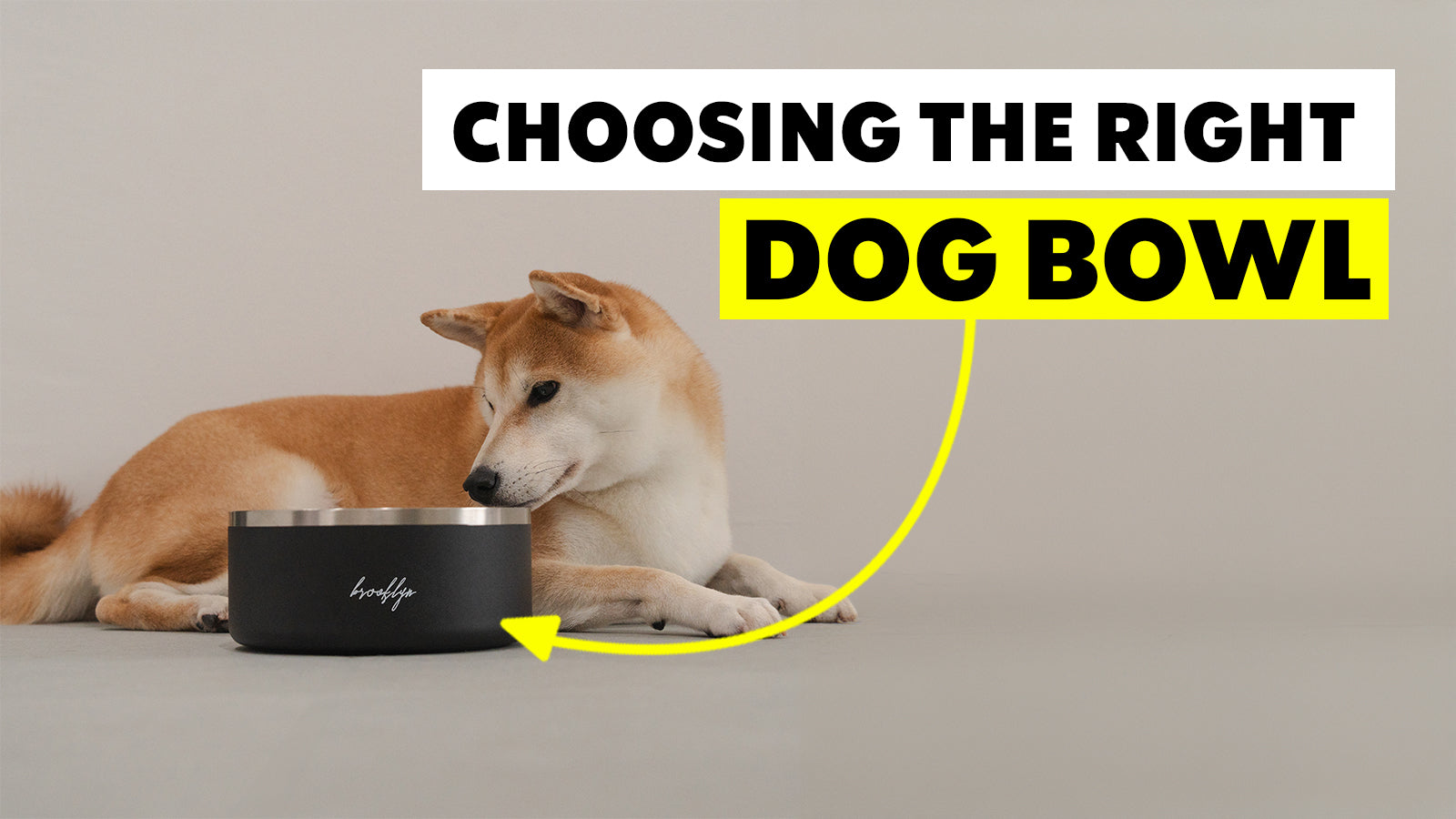Being a pooch owner, you want to offer the best experience to your furry friends so they feel loved and well-cared for. Dog bowls greatly help in this regard as they provide a vital component of their daily routine: mealtime.
However, choosing the right dog bowl is no easy task. The market is flooded with products of different types, shapes, and sizes, and finding the perfect fit for your canine companion is like finding a needle in a haystack. But there's nothing to worry about!
This article completely guides you about dog bowl types and which one to choose. Let's begin!

1. Understanding Different Materials
Stainless Steel
When it comes to top dog bowls, stainless steel is ultimately a king. It has a non-porous surface, which means there's less risk of food and bugs sneaking in. Not only this, but the overall structure of stainless steel dog bowls is highly durable and scratch-resistant.
They are dishwasher-friendly, which means cleaning them is a hassle-free task. You can also sanitise them in boiling water to keep your furry fellow away from bacterial infections.
Ceramic
Another option on our list of dog bowl materials is ceramic. Typically glazed with a 100% food-grade material, these bowls are non-porous. They are quite heavy, making it hard for your pup to trip over the food.
There are many designs available in ceramic bowls, so you can choose the one that perfectly suits your home interior without compromising aesthetics.
Unfortunately, ceramic also has a few downsides. These dog bowls are prone to cracking, and food can accumulate in the cracks. This promotes bacterial infection growth, which can affect the health of your canine friend.
Plastic
If you need something affordable, plastic dog bowls are the way to go. These bowls come in a variety of colours and designs and are pretty lightweight. However, most veterinarians consider plastic a bad option for pets as it contains chemicals that can also affect the food in the bowl, impacting your dog's health.
The best thing you can do in this case is to opt for BPA-free plastic so you can minimise the risk of harmful chemical exposure to your furry friend. Also, regularly check the plastic dog bowl for any sign of chewing and replace it in a timely to avoid food seeping through.
Silicone
Made of food-grade silicone, these bowls have recently taken the dog bowls market by storm. They are popular for thesis design aesthetics and flexibility, which makes them a perfect choice for travelling with your pooch.
You can simply throw them in your backpack when hiking or doing some other adventure without worrying about the bowl breakage. This is all due to the collapsible and durable nature of the silicone dog bowls. The best part about these bowls is that they are often BPA-free, which makes them a safe option for your pets
Stoneware
Stoneware dog bowls are pretty similar to ceramic ones. Nonetheless, they feature a matte glazed finish and are thicker and more durable compared to their ceramic counterparts. They are quite heavy and are ideal for both indoor and outdoor use. You also don't have to worry about chipping; hence, they are a worthwhile investment for your pup.

2. How to Select the Perfect Size and Height of Dog Bowls
Breed and Size of Your Dog
You must pay attention to the dog's breed and size to ensure you opt for the right bowl size. For instance, if you have a Great Dane, you should go with a dog bowl that's wide and heavy, like stoneware or stainless steel. On the other hand, for small dog breeds like Chihuahua, a lightweight and small shallow bowl will work.
Eating Habits
Also consider the eating habits and behaviour of your pooch when selecting dog bowls that enable comfortable eating. Carefully analyse if your dog is a speedy eater or likes to devour their food slowly. For a speedy eater, a bowl with ridges can slow down the eating pace, while for slow eaters, a simple, thick bowl can do the trick.
Height
The ideal dog bowl height depends upon the size of the dog and their health conditions. For instance, if your dog is large and has health issues like gastrointestinal problems and arthritis, a bowl at chest level seems suitable.

3. Balancing Functionality and Design in Dog Bowls
Design Patterns
When choosing dog bowls, don't overlook the design patterns and opt for a product that complements your interior. It doesn't matter if you want geometric patterns or whimsical designs; aligning style with functionality can enhance the overall aesthetics of your home.
Colour Scheme
Also, choose bowls that match the colour of your home's colour scheme to create a cohesive look.

The Brooklyn Has It All
Made of dual-walled insulated stainless steel, this Brooklyn® Tuff Dog Bowl has a non-slip base and is quite affordable. It has a width of 20 cm and a depth of enough to hold 8 cups of water. These dog bowls are perfect for all breed sizes, it doesn't matter the eating habits. They are also easily cleaned in a dishwasher and serve you in the long run.
Choosing ideal dog bowls requires careful consideration of your puppy's size, eating habits, and height. In addition, you've to pay special attention to the colours and designs to ensure you have a practical and aesthetic bowl. The Brooklyn brings you incredible solutions in this regard. We have top-notch dog bowls that aren't only classy but stay with your furry fellow for years.

